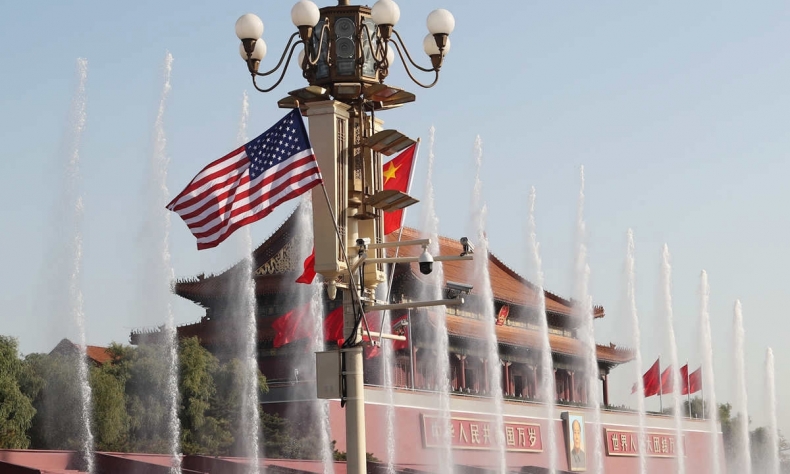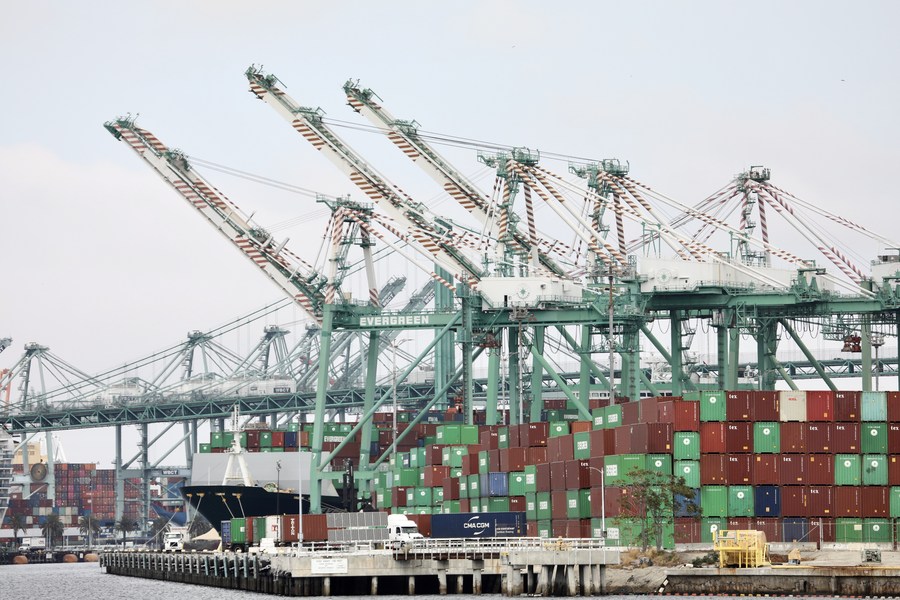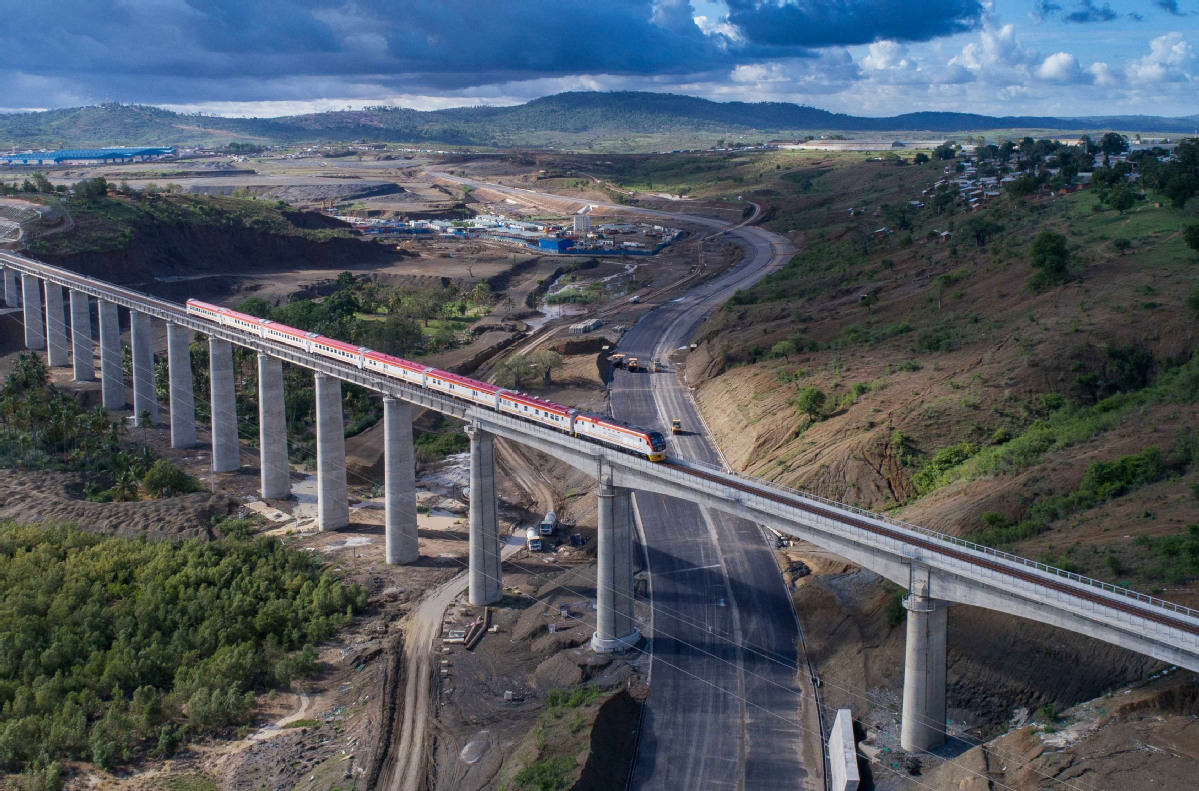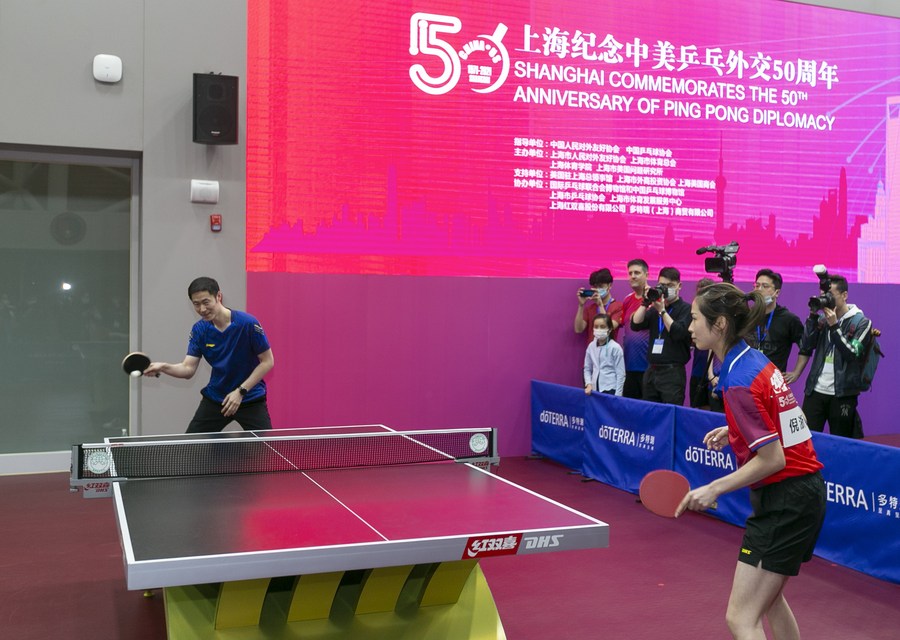China and the U.S. Share the Responsibility for a Better World

The B3W and the initiative—all those efforts should be coordinated globally by the wealthy countries, trying to establish the infrastructure necessary for the rest of the world, so that we can build a safer, more prosperous world.
Bilateral relations between China and the U.S. have seen their fair share of ups and downs in recent years. Wang Huiyao, President of the Center for China and Globalization, a Beijing-based think tank, spoke with John L. Thornton, Chair Emeritus at Brookings Institution, an American think tank, about future ways to break the impasse and move the bilateral relationship forward. An edited excerpt of their dialogue follows:
Wang Huiyao: You talked about the deficit of trust between China and the U.S. and how we can once again build this up. Today, we are several months into President Joe Biden’s administration; what more can be done?
John Thornton: I am skeptical about the grand sweeping statements about inflection points or decoupling or Cold War analogies. For me, these statements are mostly emotional, provocative, unhelpful and wrong.
I think we’re better off looking at the long term and the trajectory of dynamics and forces creating that long term. Recently, I have taken to looking at the mid-21st century, the year 2050 or thereabouts. The best estimates are that the world’s population in 2050 would be about 10 billion people. Today, we are approximately 7.8 billion. More than half of the incremental 2.2 billion will come from nine countries: India, Nigeria, the Democratic Republic of the Congo, Pakistan, Ethiopia, Tanzania, the United States, Uganda and Indonesia.

In 2050, like today, a small percentage of the world’s countries will represent 65 to 70 percent of the global GDP—maybe the top 10 countries will represent that. In that world, in which very few countries dominate the global GDP and the incremental 2-plus billion people are coming from very poor countries, does any serious-thinking person believe we would be better off with rich countries primarily arguing, or even fighting, amongst themselves, while the vast majority of the world remains poor, malnourished, victims of climate change, and sources of migration, disease and poverty? Or do the wealthy, most powerful countries have a responsibility to work together to lead the world to a safer, more prosperous and more harmonious place? Isn’t the answer obvious?
If the answer is so obvious, then why does it feel or seem that at least some, maybe many, of the world’s richest, most powerful countries do not seem to be animated or motivated by such a collective goal? There are a myriad of answers to this question, but it certainly includes a penchant for being captured or trapped by outdated thinking, as well as a fear of change, of losing one’s place.
Whatever the reasons, surely the world’s two most powerful countries, the U.S. and China, have a disproportionate responsibility to lead the world. There is no reason why they cannot do this.
The issue of climate is a global one. The entire thinking world wants it to be solved or, at least, well-managed. The two leading countries must bring the solution or the matter will not be resolved. Everyone knows this. Tellingly, the two presidents are following the only path, the only modus operandi that works in U.S.-China relations: the Zhou Enlai-Henry Kissinger model or, more recently, the model featuring a dialogue between Chinese Vice Premier Liu He and former U.S. President Donald Trump’s trade representative Robert Lighthizer. The only model that we know works is when the U.S. and Chinese presidents each appoint a very senior, serious, experienced, highly trusted individual.

Both presidents have publicly stated they would cooperate on the topic of climate irrespective of other issues. Both should instruct their senior officials to give the existential issue a real chance to get resolved.
Finally, to state the obvious, success on climate will demonstrate yet again that the U.S. and China working together can lead the world to a better, safer and healthier existence. This is good for both countries and the world itself, as well as offers hope and a concrete model.
Wang Huiyao: Scholars said what had been proposed at the G7 Summit in June about the Build Back Better World (B3W) global infrastructure program by Biden could be looked at together with China’s Belt and Road Initiative and other EU investment plans. Chinese President Xi Jinping had a video conference with French President Emmanuel Macron and German Chancellor Angela Merkel in July and they talked about China-EU collaboration in Africa. What do you think?
John Thornton: The Belt and Road Initiative has been characterized by many people in the U.S. as some kind of “nefarious” geo-strategic plan to take over the world; it’s not. The B3W and the initiative—all those efforts should be coordinated globally by the wealthy countries, trying to establish the infrastructure necessary for the rest of the world, so that we can build a safer, more prosperous world.
We all know these projects are very difficult to execute. It’s not as though anyone’s got a monopoly on how to do this well. They are tough undertakings. And we would be doing ourselves a great service if we, the world, became particularly expert at efficiently creating important infrastructure all around the globe for the benefit of all.

Wang Huiyao: There’s a concern about student exchanges between China and the U.S. How do you think we can promote people-to-people communication?
John Thornton: The ties between the American and Chinese people are absolutely essential to getting the relationship where it needs to be. I’m hopeful that the younger generations, who have a vested interest in the long-term future of their countries, will act as the forces for good in the relationship.
In one way of thinking about China, for example, you can think about roughly 400 million millennials, how they have grown up and how they see the future. The Chinese leadership needs to be responsive to that group. And the same thing goes for the U.S. The ties between those groups are absolutely central to advancing progress and I’m pleased to see the Biden administration—this is one area where they are moving quickly—rectifying the policy of the previous administration and opening back up again to people-to-people exchanges.
However, it cannot be overstated that the sort of societal trust that needs to be in place was being built and can be further built. I think, in some ways, the wisdom or common sense of ordinary people can act as kind of a break against the occasional unwise policies of the elites.

Wang Huiyao: This year marks the 50th anniversary of Dr. Henry Kissinger’s visit to China. At the July 9 commemoration, Dr. Kissinger mentioned that the U.S.-China relationship is more critical today than it was in 1971. Is there any chance both sides will somehow “break the ice” again? What is your vision for the future development of China-U.S. relations?
John Thornton: When we talk about competition and cooperation, I can understand and be comfortable with both of those ideas between the countries. But when we add the idea of confrontation, to me, that is one notion absolutely out of the question. We shouldn’t even consider that as a concept.
The world simply can’t take it. We shouldn’t waste any time on it. Should the leading countries of the world really be spending their time arguing or trying to put each other down, or should they be spending their time trying to get the world to a better place? To me the answer is very obvious. And the sooner we recognize that, the better. We have a right to demand of our leaders that they get the big things right, as Richard Nixon, Mao Zedong, Kissinger and Zhou did 50 years ago.
 Facebook
Facebook
 Twitter
Twitter
 Linkedin
Linkedin
 Google +
Google +










